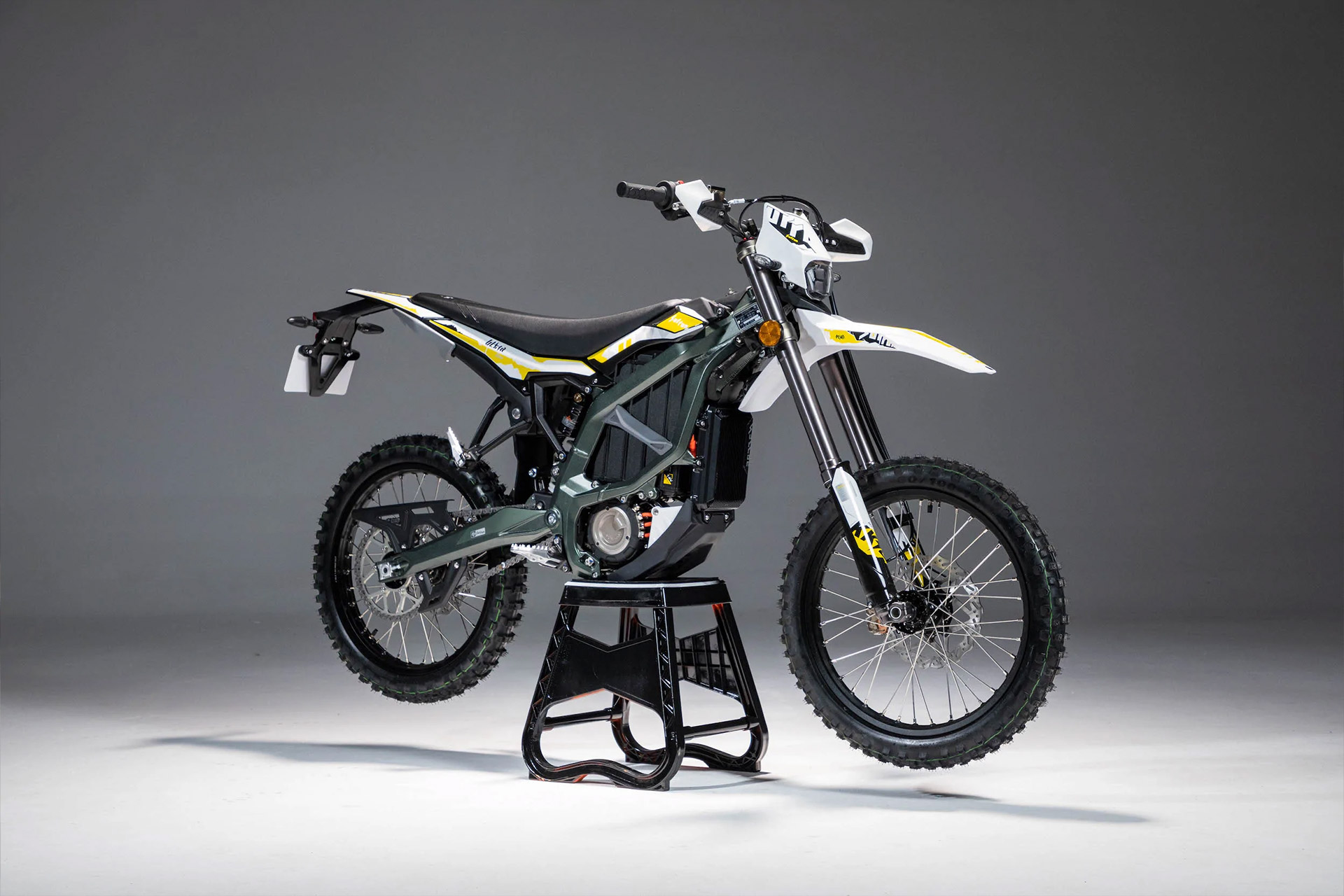So, you’re eyeing a Sur-Ron and dreaming of electrifying rides? Before you hit the road, let’s tackle the crucial question of street legality. This guide provides a comprehensive overview of Sur-Ron legality, from model variations and required modifications to state-specific regulations and safety considerations.
Understanding Sur-Ron Street Legality
The street legality of a Sur-Ron isn’t a simple yes or no. It depends on the model, your location, and whether the bike has been modified to meet road standards.
Decoding the Differences: Models and Modifications
Most Sur-Rons, especially those popular in the US like the Light Bee X, are designed for off-road thrills. They typically lack the Department of Transportation (DOT) approved safety features required for on-road use, such as:
- DOT-approved lighting: Headlight, taillight, brake light, and turn signals.
- Mirrors: For rear visibility.
- Horn: To alert other road users.
- Speedometer: To monitor speed and comply with limits.
- License Plate Mount: For proper registration display.
- DOT-approved Tires: Many states require specific tire ratings for on-road vehicles.
The Sur-Ron Light Bee LBX (L1e) stands as a notable exception. Manufactured with on-road use in mind, it comes equipped with some of these street-legal features. However, even the LBX’s legality varies by state, requiring careful research of local regulations.
Modifying an off-road Sur-Ron for street use is possible in some jurisdictions. This involves adding the missing DOT-approved components listed above. However, this can be a complex and costly process, with no guarantee of meeting all local requirements. Even with modifications, some states might classify Sur-Rons as motorcycles, necessitating a motorcycle license, registration, and specific insurance.
Navigating the Legal Maze: State-Specific Regulations
E-bike laws are a patchwork across the United States. Some states adhere to a three-class system (Class 1, 2, and 3) for e-bikes, each with its own speed and power restrictions. A modified Sur-Ron might fit into one of these categories, but this isn’t always clear-cut, and classifications can differ between states.
Resources like Dirt Legal can offer guidance on making off-road vehicles street legal in some jurisdictions. However, they aren’t a universal solution, and consulting your local Department of Motor Vehicles (DMV) remains essential for accurate, up-to-date information on your state’s specific requirements. This is especially important as e-bike laws are constantly evolving.
Legal Risks and Safety Precautions
Operating an unregistered or non-compliant Sur-Ron on public roads carries significant risks. Penalties can include:
- Hefty fines: These can vary significantly depending on the specific infraction.
- Confiscation: Authorities may impound your Sur-Ron.
- License suspension: Your driving privileges could be revoked.
Beyond legal consequences, safety should always be paramount. Regardless of your Sur-Ron’s legal status, wearing appropriate safety gear is crucial. This includes:
- Helmet: Essential for protecting your head in case of an accident.
- Gloves: Shield your hands from injury.
- Protective Clothing: Offers an extra layer of protection against scrapes and impacts.
Insurance Considerations
Standard motorcycle insurance might not cover a modified off-road bike like a Sur-Ron. You might need specialized off-road or e-bike insurance. It’s wise to contact your insurance provider before hitting the streets to ensure you’re adequately covered.
Riding a Sur-Ron: Age Matters
Can a 13-Year-Old Ride a Sur-Ron?
The question of whether a 13-year-old can ride a Sur-Ron depends on several factors, primarily where they’re riding and the specific model.
On Public Roads: A 13-year-old cannot legally operate a Sur-Ron, or any motorcycle, on public roads in most jurisdictions. This is due to licensing requirements, which typically mandate a motorcycle license or endorsement, often requiring a minimum age higher than 13. Even with the street-legal Sur-Ron Light Bee LBX (L1e), age restrictions still apply.
Off-Road: 13-year-olds can ride Sur-Rons off-road, but only on private property (with parental permission) and with appropriate safety gear. Always check local regulations regarding off-road vehicle use, as age restrictions and other rules may apply. Proper adult supervision is crucial in these situations.
The Future of Sur-Ron and Street Legality
The landscape of micromobility and e-bike regulations is constantly shifting. The future may see more street-legal Sur-Ron models or changes in legislation that could impact current regulations. Staying informed about local laws and developments in the e-bike world is key to enjoying your Sur-Ron legally and safely. Unearth the fascinating world of the ark doedicurus and uncover its unique adaptations. Dive into the murky depths of speculation surrounding alligators lake erie and discover the truth behind these chilling rumors.
- China II Review: Delicious Food & Speedy Service - April 17, 2025
- Understand Virginia’s Flag: History & Debate - April 17, 2025
- Explore Long Island’s Map: Unique Regions & Insights - April 17, 2025
















